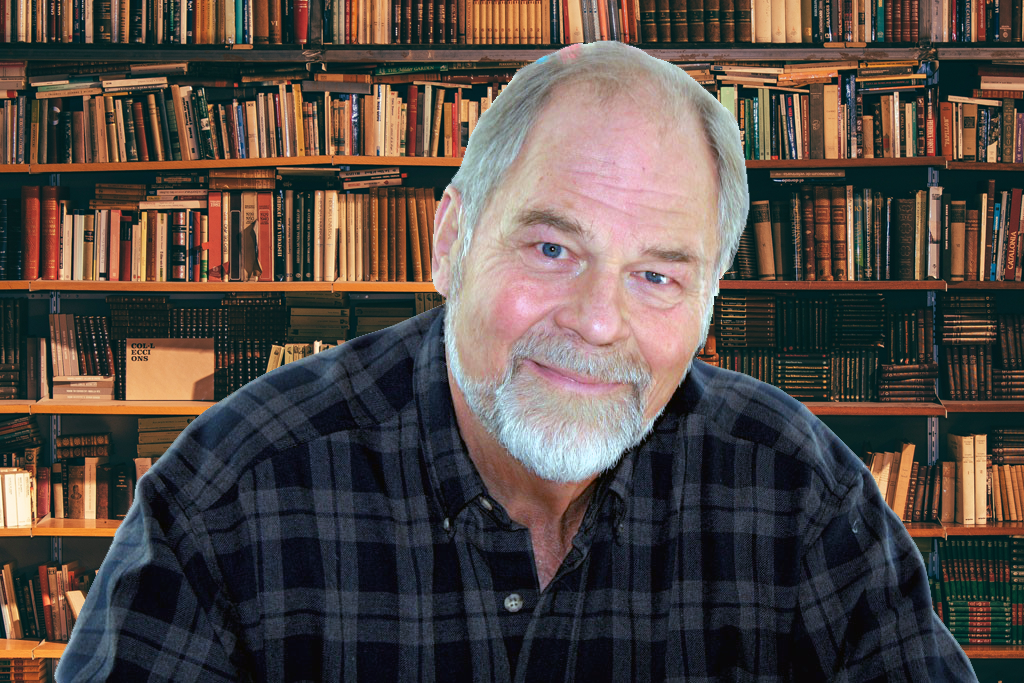The widower pushed the tailgate shut and fell.
The two sounds –click and thud– seemed synchrony,
As if one in fact were function of the other.
The red calf, bound for veal in the pickup’s bed,
Looked rearward over his shoulder. No one there.
A ginger-hackled rooster, framed by the door
Of the loft, screamed loudly, sun igniting him
To noontime flame. He sent six hens in a dash
For cover under bush and sill, as though
His love-assault might be a thing far worse
Than the farmer felt – or rather did not feel,
The death so quick and commotionless his livestock
Didn’t notice. Everything once had purpose
Here, and meaning, and might still have, if only
He’d stayed to read them. Now a skinny cloud
Rode unremarked on a breeze above the barn,
Unsafe and leaning. His horse, a spavined relic
From other ages, whickered behind the house,
All canted too, its paint mere scattered flakes.
Meaning and purpose had blurred in recent years
But the farmer kept right after them no matter.
Who’d free the weanling now, who lead him to slaughter?
So: how do poems get generated in my mind? Well, they certainly never begin with what, in my teaching days, students called “ideas.” They tend rather to begin with some sensory recall, more often than not auditory. This can be the sound, say, of a certain woodpecker on a very still spring morning; a snatch from an old Monk tune; or, as in this case, most typical for me, a small chunk of conversation that has lodged itself in mind, whether or not I know it.
After a reading last year, somehow an audience member mentioned a farmer of his acquaintance, one who like all small farmers in the era of agribusiness, had struggled to keep his place going, and one who’d just dropped dead while closing the gate of his pickup on a veal calf.
For whatever reason, I vividly heard the click of the tailgate and the thud of the man’s body when it fell.
And then my mind shot back more than fifty years to a farmer whom I had worked for in those old summers. He’d lost his wife and, age supervening, was finding the relentless labor of his calling more and more difficult. He said to me, a boy not yet eighteen, “This place used to have a meaning and a purpose.” The click and thud instantly married that remark, and I fused the two countrymen into one. I had only to fill in the physical details of the farmhouse and farmyard to finish the poem. Whatever its merit, then, “Abbatoir Time” was all but given to me. If that’s inspiration, so be it, inspiration in such a case really being a sort of selective and synthesizing memory.
Which leads me to a terse answer to another frequent question: are my poems always founded on my own factual experience? Well yes, of course, who else’s? Yet the facts per se may have transpired at different times, in different places. There is, for example, no actual single farmer who experienced the specific moments I render here; and yet I hope my imaginative construct, my blending of two figures, shows a “true” account of a human being in the situation I describe—I hope it is true in the sense of being more or less faithful to anyone’s sense of loss and diminishment.
